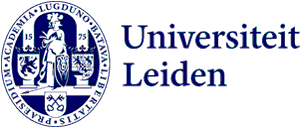
How we’re setting Academia in Motion: by promoting transparent research and societal engagement
‘I'm setting Academia in Motion by promoting transparent and rigorous research practices and by advocating for more interaction between science and society.’ With these words, Ludo Waltman, Open Science Ambassador for Academia in Motion, highlights how he is contributing to the culture change towards Leiden University as an open knowledge community. He believes that traditional academic norms hinder scientific progress. Embracing open science is essential for a more effective and trustworthy research system.
Hi Ludo, could you explain what transparent research means to you?
‘For me, research transparency means sharing data sets and source code whenever possible, and posting articles on preprint servers before peer review. It also means using open peer review, which offers insight into how articles are evaluated. This helps to ensure research quality.
‘Transparency means research is more reproducible, errors are easier to spot, feedback is shared more widely and researchers can build more effectively on one another’s work. All of this is essential to making our research methods more reliable.
‘I often meet researchers who think they’re being really transparent because they publish open-access articles. Publishing open access is a great step, but there’s so much more your can do.’
Could you give an example of how you are helping make the research process more transparent?
‘Together with colleagues, I co-founded the MetaResearch Open Review (MetaROR) platform as an alternative to traditional academic journals. It follows the publish-review-curate model: articles are first published as a preprint, then undergo peer review, and finally receive a publicly available editorial assessment based on the peer review outcomes.
‘Unlike traditional journals, the editorial assessment isn’t a black-and-white decision (accept or reject) but provides a summary of the article’s strengths and weaknesses. I always try to publish my work through MetaROR, and actively contribute as an editor and reviewer/ I avoid traditional journals when I can.’
How are you fostering interaction between academia and society?
‘I communicate about my research in different ways, adapting the communication method to the audience I want to reach. For academic peers, traditional research articles are often the best way to communicate about my work, but for the general public, I tend to use blog posts, social media or policy reports.
‘Even more important, perhaps, is involving partners from society early at an early stage in research projects or ideally co-creating research projects with these partners. That can be challenging, but when it works, it often leads to research with a real impact on society.’
How can colleagues help improve the research system? And why is that so important?
‘Don’t be led by all sorts of norms you don’t fully understand. Some of these are not just ineffective but actually harmful to good science.
‘For example, many research results are only published after a peer review process that can take one, two or even three years. That causes significant delays in sharing scientific knowledge. And because peer review processes are closed, we often have no insight into how thoroughly the quality of scientific articles has been assessed.
‘The pressure to publish in so-called top journals means that articles are often rejected multiple times before being accepted for publication, which is frustrating for authors, peer reviewers and journal editors alike. This system puts everyone under enormous pressure, and it’s questionable whether these journals really do succeed in selecting the best research.
‘While many of us struggle to publish in traditional academic journals, we’re not making nearly enough use of the alternatives. For instance, here in Leiden we still publish only a limited number of our articles on preprint servers. That’s a missed opportunity.’
What would you say to colleagues about research?
‘My message to colleagues is that we all share responsibility for addressing these challenges. We must have the courage to question traditional norms in scientific research and embrace new approaches, such as in open science. “That’s how we do things here” is not a valid excuse. Every researcher has an active role to play in building a better research system.’
How we’re setting Academia in Motion at Leiden University
This interview is part of a series highlighting the various actions colleagues are taking to support culture change at Leiden University. Together we are becoming an open knowledge community, closely connected to society, that recognises and rewards everyone’s contribution to our strategic goals. Curious? Visit the Academia in Motion website.
